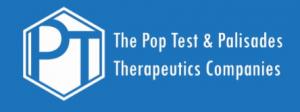France - Amsterdam Aesthetics originally published at France - Amsterdam Aesthetics
Patent Grant Expands Palisades’ Patent Portfolio for Neurodegenerative Diseases
— Ronald Tjalkens, PhD (Colorado State University)
CLIFFSIDE PARK, NJ, UNITED STATES, June 7, 2022 /EINPresswire.com/ — Palisades Therapeutics (PT) demonstrates in vivo neuroprotective effect of PT150 in the rotenone model of Alzheimer’s/Parkinson’s disease. Orally delivered PT150 at 30 and 100 mg/Kg/day given after exposure to rotenone improved cognitive function in female mice.
OVERALL CONCLUSION: PT150 effectively inhibits neuroinflammation in multiple cellular and animal models of inflammatory brain injury, as well as increasing cognitive performance.
The efficacy of PT150 across different species and in different models underscores the pharmacodynamic potency in preventing neuroinflammation.
The Palisades Therapeutics Drug Platform Demonstrates Reduction in Neuroinflammation Across Three Species
Reduction in neuroinflammation has been demonstrated in three species (mice, rats and hamsters) with CONSISTENT RESULTS. The PT drug platform effectively inhibit neuroinflammation in multiple cellular and animal models of inflammatory brain injury. The efficacy of the PT drug platform across different species and in different models underscores the pharmacodynamic potency in preventing neuroinflammation that is likely to be effective in humans in a range of diseases.
Findings, – general neuroinflammation
– PT platform suppresses neuroinflammation in primary brain glial cells
– PT platform decreases expression of the inflammatory cytokines IL-6 and IL-1β in primary astrocytes
– RNA silencing of GR expression abrogates the anti-inflammatory activity of PT platform in primary astrocytes
CONCLUSION: The PT platform directly prevents activation of inflammatory signaling pathways in microglia and astrocytes in response to a number of different activators of innate immunity.
Findings, – SARS-CoV-2 neuroinflammation
– PT platform decreases astrogliosis in the hippocampus following SARS-CoV-2 infection
– PT platform decreases microgliosis in multiple regions of the hippocampus following
SARS-CoV-2 infection
CONCLUSION: The orally delivered PT platform reduces neuroinflammation in the brains of Syrian hamsters infected with SARS-CoV-2.
Findings, – Neuroinflammation in opiate use
– Anti-neuroinflammatory effects of PT platform in the rat model of fentanyl addiction
– PT platform reduces microgliosis in fentanyl-treated rats
– PT platform reduces astrogliosis in fentanyl-treated rats
CONCLUSION: The PT platform effectively reduces activation of microglia and astrocytes in multiple brain regions in rats exposed to fentanyl. Michael Bardo, PhD (University of Kentucky) believes, “We need new approaches to treating the neuroinflammatory sequelae associated with drug abuse. PT opens a new treatment avenue”.
Neuroinflammation is a central feature of neurodegenerative disease that drives neuronal injury. Currently there are no available drugs that treat or reduce chronic neuroinflammation of neurodegenerative diseases such as Parkinson’s, Alzheimer’s, COVID-19, or opiate addiction. Ronald Tjalkens, PhD (Colorado State University) believes that “the antibody approach doesn’t work, they target aggregated proteins far too late in the disease process. The PT orally administered platform is targeting inflammation and works much earlier in the disease process.”
Palisades is expanding their neuroscience portfolio of clinical stage and early stage therapeutics including clinical stage PT150 under FDA IND for Neurodegeneration.
Neuroinflammatory changes have been implicated in long haul COVID syndrome. These changes include underlying symptoms such as depression, fatigue, memory dysfunction, and “brain fog.” Data for PT150 indicates it is a likely modulator of neuroinflammation that may be expected to therapeutically impact on these symptoms.
Palisades collaborates with academia and industry through cutting-edge research and partnerships to advance the scientific understanding of neurological conditions, which have historically been among the hardest disorders to study, diagnose and treat.
Palisades Therapeutics invites industry leaders in the field of neuroscience and/or anti-virals such as Pfizer Inc. (NYSE: PFE); Janssen, a Johnson & Johnson company (JNJ); Roche/Genentech (SIX: RO, ROG; OTCQX: RHHBY); and AbbVie Inc. (ABBV); to review our data.
Randi Altschul
Pop Test Oncology/Palisades Therapeutics
+1 201-943-3770
[email protected]
![]()
The post Palisades Therapeutics’ Clinical Stage Drug PT150 Granted Patent for Parkinson’s Disease and Multiple Sclerosis first appeared on Amsterdam Aesthetics.
France - Amsterdam Aesthetics originally published at France - Amsterdam Aesthetics


 ,
,